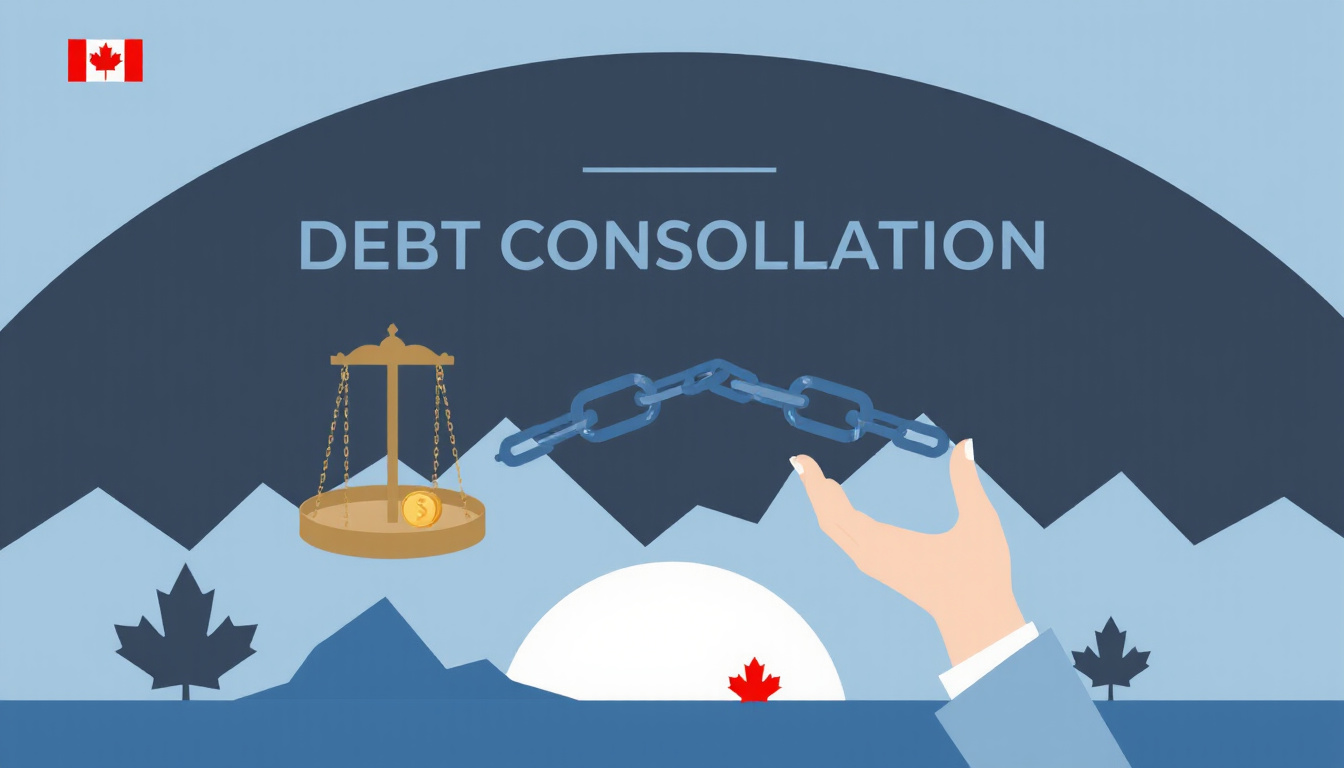Understanding Debt Consolidation During Bankruptcy: Your Essential Guide
Debt can be a heavy burden, weighing down your financial freedom and leading to stress and anxiety. For many Canadians, navigating the murky waters of debt management becomes even more complex during bankruptcy proceedings. One question often arises: ‘Can I consolidate debt during bankruptcy?’ This guide will illuminate the process of debt consolidation, explore its availability during bankruptcy, and present alternative strategies to help you regain financial stability. By understanding these elements, you can make informed decisions and take control of your financial future.

Key Takeaways
- Debt consolidation involves combining multiple debts into a single loan with a lower interest rate.
- During bankruptcy, traditional debt consolidation options are often not available.
- It is important to assess whether debt consolidation is beneficial in the context of bankruptcy.
- There are alternatives to debt consolidation, such as debt restructuring or negotiating with creditors during bankruptcy.
- Understanding your options can help you make informed decisions during financial hardship.
What is Debt Consolidation and How Does it Work?
Debt consolidation is a financial strategy that combines multiple debts into a single loan, simplifying repayments and often reducing interest rates. By consolidating your debts, you can manage them more effectively, making it easier to stay on track with payments. A common question many Canadians have is, ‘Can I consolidate debt during bankruptcy?’ Typically, during bankruptcy, your financial circumstances are under the court’s scrutiny, making it challenging to initiate new loans including debt consolidation. However, for some, secured debt consolidation loans may still be an option, allowing you to pay off high-interest debts while undergoing a bankruptcy process. It’s crucial to consult with a licensed insolvency trustee or a financial advisor to understand the implications and explore the best approach based on your unique situation.
Can I Consolidate Debt During Bankruptcy?
If you’re considering the option of debt management during a bankruptcy, you may find yourself asking, ‘Can I consolidate debt during bankruptcy?’ The simple answer is no; debt consolidation is not typically an option during bankruptcy proceedings. When you file for bankruptcy, the goal is to either eliminate your debts or create a plan for repayment under the protection of the court. Consolidating debt generally involves taking out a new loan to pay off existing debts, which can complicate and hinder the bankruptcy process. Instead, it’s crucial to focus on understanding the types of bankruptcy available to you—such as Chapter 7 or Chapter 13 in Canada—and how these can affect your debts. Consulting with a licensed insolvency trustee can provide clarity on your financial situation and the best course of action to achieve debt relief while ensuring you remain compliant with bankruptcy laws.
‘In the midst of every crisis, lies great opportunity.’ – Albert Einstein

Alternatives to Debt Consolidation While in Bankruptcy
When facing the challenges of bankruptcy, many individuals wonder, ‘Can I consolidate debt during bankruptcy?’ While consolidation typically involves combining multiple debts into a single loan for easier management, it’s essential to understand that this option may not be available or advisable during bankruptcy proceedings. Typically, once you file for bankruptcy, a court-appointed trustee oversees your financial situation, which limits your ability to incur new debts or alter existing ones. However, there are alternatives to debt consolidation that individuals can explore while navigating bankruptcy. Options such as negotiating with creditors to settle for a lesser amount, exploring consumer proposals, or even enrolling in financial counseling programs may help rebuild your financial standing. Engaging with a licensed insolvency trustee (LIT) can provide guidance tailored to your unique circumstances, ensuring you make informed decisions about your financial future.
